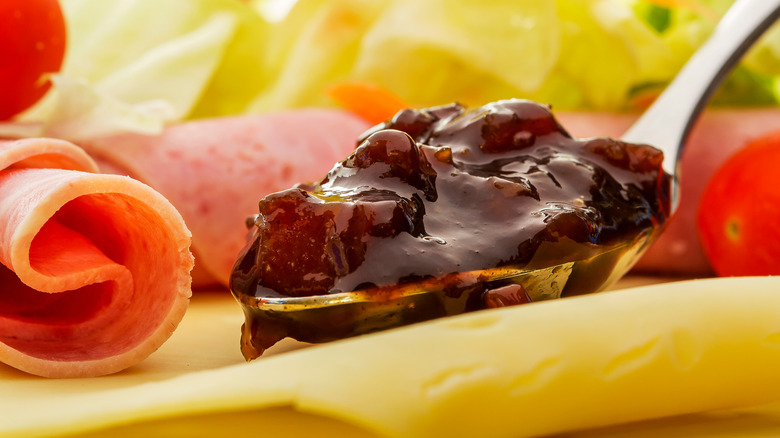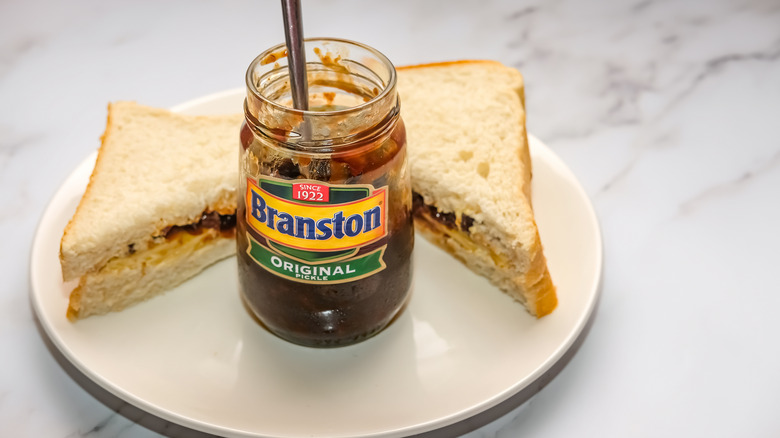What's Really In Branston Pickle?
If you've ever sampled a Ploughman's lunch which, per Britannica is enjoyed in pubs across Britain, you'd probably know it is meant to be inspired by the type of food a typical ploughman might have enjoyed when he took his midday break. You'd also know it is usually served cold, and would be made up of cheese, bread, butter, and a serving of a Branston pickle.
While more popular types of pickles in the U.S. would generally be made with just cucumbers and possibly with spices and aromatics, Branston pickles are made with seven different types of vegetables — carrots, cauliflower, gherkins, onions, rutabaga or swedes, tomatoes, and marrows (via Cook's Info). The ingredient list for Branston pickle today appears to be an abridged version of the original, which also included dates, and apple puree. The vegetables are cut to just half an inch in size, before they are blended together with a brown-colored sauce made of sugar, malt vinegar, tomatoes, and spices, per Food52.
Branston pickle is one of Britain's most popular condiments
Because it is sweet, sticky, and brown, some folks might be forgiven for classifying Branston pickle as a chutney, but if we were looking for labels, Epicurious describes the chunky sweet and sour umami sauce as being more of a relish. The recipe is said to come from a woman who lived in the village of Branston, who made the relish until she sold the recipe to a company named Crosse and Blackwell in 1921, per Cook's Info. Nestle eventually acquired Crosse and Blackwell in 1950, but eventually sold it to a U.S. based private equity firm, who rolled it into a British food company known as Premier Foods.
The recipe hasn't stayed constant throughout — it has actually changed a few times, but Crosse and Blackwell appear to have done a good job making sure that fans didn't notice the changes, because it consistently sells more than 17 million bottles a year, per Food 52.
But if the Indian Express is to be believed, that most British of condiments isn't actually British. The publication considers Branston pickle to be the "one Indian staple which you'll find in most British larders" — which is a pantry to those of us who live in America.

